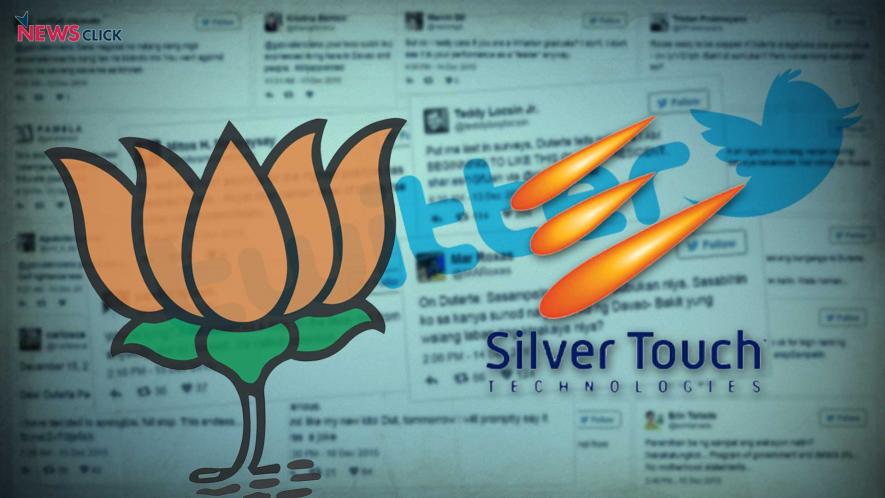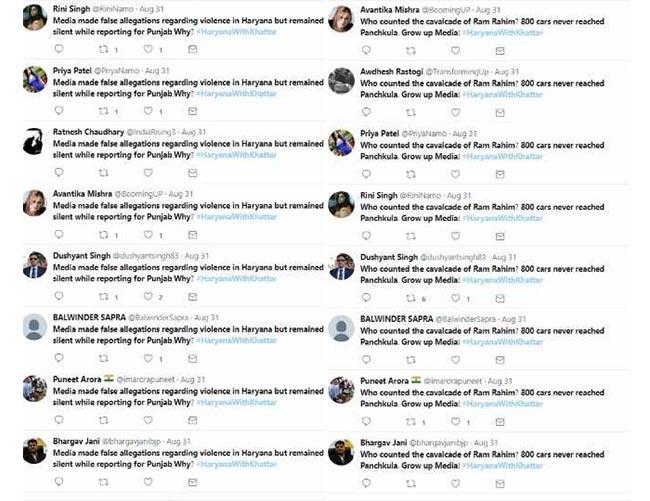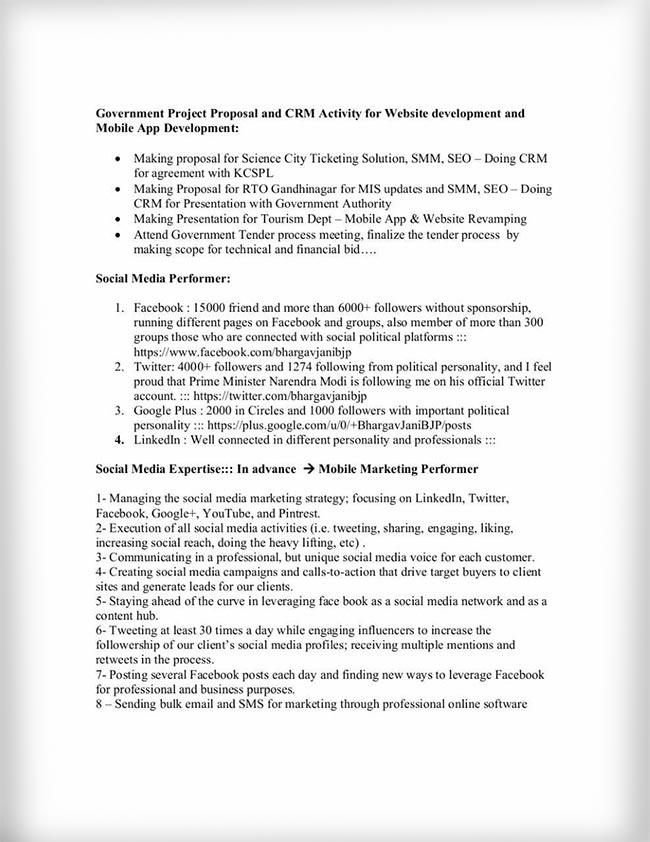BJP and the ‘Silver Touch’ of Trending Lies

Newsclick Image by Nitesh Kumar
The IT cell of Bharatiya Janata Party has been at the centre of discussions many times for its excessive trolling and propagating false information, but no media house had picked up the issue. In a turn of events, NDTV did an expose on BJP’s fake twitter trends on Monday. The investigation done by the channel gives evidence of BJP paying large sums of taxpayers’ money to an IT firm to take care of their online popularity and attack the opposition.
So how does forced trending works? Before we go any further, let’s cover the basics.
Usually brands and political parties hire PR agencies which employ social media ‘influencers’. These influencers run multiple social media handles and usually have a huge following. A person puts out, say, a dozen template tweets with the decided hashtag at a pre-determined time. The troupe of pro-BJP handles then release the same tweets with the hashtag at a high intensity. They are provided with a brief about the campaign containing the sample tweets, a list of people they should attack, the timing of the tweets, etc.
Coming back to the relationship between Silver Touch, an old IT firm established in 1992 in Ahmedabad, and BJP, the surfeit of fake-account-tweets started during the conviction of Gurmeet Ram Rahim Singh, following which there was a large scale violence in Haryana. The Chief Minister of the state, ML Khattar, faced nationwide criticism for failing to control violence in the state. To defend Khattar, BJP's social media team trended the hashtag #HaryanaWithKhattar. What followed was a known technique of powering the trend through a cluster of pro-BJP handles colossally posting the same tweets. For instance:

Another example of forced trending done by the BJP IT cell was when they tried to change the narrative on social media about Modi government’s ill-planned and poorly executed exercise – demonetisation. Hundreds of Twitter handles were deployed to tweet the exact same ‘facts’, using the hashtag #DemonetisationSuccess.

Among those amplifying #HaryanaWithKhattar trend was Bhargav Jani (@bhargavjanibjp). Bhargav posted 63 tweets (that originated on other accounts) with the #HaryanaWithKhattar hashtag in 92 minutes. In his LinkedIn profile, Bhargav Jani describes himself as a ‘Social Media Manager for BJP’ since January 2009. Followed by the Prime Minister on Twitter, Jani also claims to be a Manager in Social Media in Silver Touch Technologies Ltd since December 2016. Here is a detailed CV of Mr. Jani which was uploaded on LinkedIn.

Silver Touch has an index of private clients like Reliance Industries, Adani Group, Hitachi, Nirma Group. Government contracts, however, appear to be the key player. The firm's list of business includes the maintenance of 46 government websites, as well as developing apps for the Ministry of External Affairs, the President of India and many others.
The government of Gujarat appears to be a big client - NDTV reported at least 17 departments who have availed of Silver Touch's services.
‘In its draft red herring prospectus filed before the National Stock Exchange of India in September this year, it said that it got 53% of work from government contracts worth approximately 62.5 crores rupees in the last financial year.’ NDTV reported.
Being an IT firm, it doesn’t make sense as to why the company would hire a social media performer when its website has no mention of providing social media services.
Furthermore, Bhargav Jani is not the only employee of Silver Touch who is actively amplifying pro-BJP and pro-government trends on social media. One of its directors, Himanshu Jain, who has been with the company since 2010, tweets under the handle moniker HeMan NAMO (@HimanshuJainOn). Apart from PM Modi being one of his followers, Himanshu’s twitter timeline is full of tweets in support of the BJP and attacking its rivals.
He was also part of gamed hashtags like #ModiTransformsIndia on the day when PM Modi delivered a lengthy speech defending the economy and #LiesAgainstShah to counter the backlash after reports on the finances of BJP president Amit Shah’s son.
To investigate further, NDTV reporters called Silver Touch, posing as representatives of a senior minister from Uttar Pradesh, keen to engage the services of someone like Bhargav Jani to boost the fictional minister's profile on Twitter and counter his critics. Company representatives were willing to do “online reputation management”. The reporters recorded the conversation. Butt when Silver Touch executives were confronted on the issue, they flatly refused all allegations saying they have nothing to do with social media services. To read the full report with audio evidences, see here.
BJP IT cell head Amit Malviya denied any knowledge of Silver Touch Technologies and Bhargav Jani. In an email response to NDTV, he wrote, "I don't know of anyone with the name Bhargav Jani who works with BJP IT Cell in any formal or contractual capacity, either in the national team or any of the state teams. He may be a volunteer though. I also don't know of Silver Touch Technologies. Have never met any of their representatives. So the question of BJP IT department having any kind of dealing with them doesn't arise."
This expose carried out by NDTV has given way to a plethora of questions and qualms. Is the BJP government using taxpayers’ money to suppress opposing voices and enhance its popularity? Why are such huge amounts of money (over 60 crores) been given to agencies like Silver Touch? Why is the government investing resources on its Ministers’ reputation rather than ridding the country of diseases, poverty, malnutrition and agrarian crisis? What’s even more troubling is that the involvement of the government in social media is more vigorous than one would imagine.
Recently, in a conversation with a BJP consultant, it was revealed that the BJP CM in Manipur had re-tweeted a post by a fake Salman Khan Account. Immediately, the team in the Information Broadcast Ministry called the CM office asking to delete the re-tweet. Apparently our Ministries have nothing better to do than keep an eye on individual tweets by Ministers.
In another instance of fake twitter accounts and intensive retweeting, a hashtag #RahulWaveInKazakh trended for a long time on Twitter on October 21. This hashtag was trending in response to an article by ANI where they exposed 10 Twitter accounts from various countries like Russia, Kazakhstan and Indonesia that had retweeted a tweet by Rahul Gandhi. But the story has an interesting twist. Apparently, BJP IT cell had been circulating screenshots of those fake accounts on WhatsApp hours before ANI reported it. Alt News did a detailed story on the same. How did BJP IT cell know that ANI was going to feature those selected Twitter accounts in their article? Or was BJP IT cell the source of information for ANI’s report? When Newsclick tried to question ANI on the same, they refused to comment.
The reason to be alarmed by this new fashion of propagating fake news through social media is that, for a large number of people, this is their source of information. Their opinions are formed by what the media shows, as it should be, but the press in India is not exactly ‘free’. Social media is more widespread than ever and expanding. By spreading false news or making hashtags trend for popularity, the central government is trying desperately to veil its failures. They are cultivating a culture where debate is framed largely by appeals to emotion, disconnected from ground reality and repeatedly asserting talking points, to which factual rebuttals are ignored.
Disclaimer: The views expressed here are the author's personal views, and do not necessarily represent the views of Newsclick.
Get the latest reports & analysis with people's perspective on Protests, movements & deep analytical videos, discussions of the current affairs in your Telegram app. Subscribe to NewsClick's Telegram channel & get Real-Time updates on stories, as they get published on our website.























